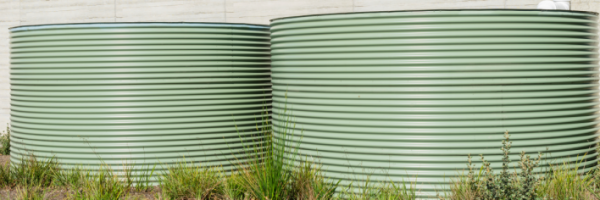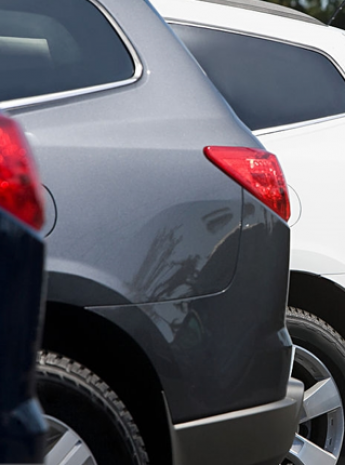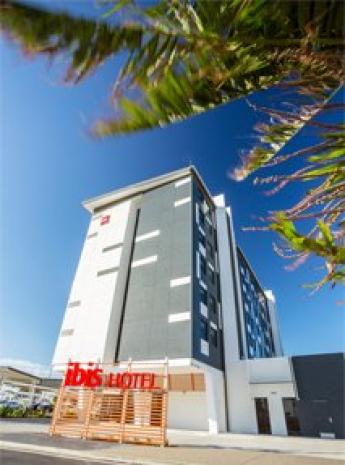Mackay Airport is implementing a progressive five-year Environment Strategy to guide our actions and to set the scene for long term aspirations in alignment with global standards such as the Paris Agreement and the United Nations Sustainable Development Goals (SDGs).
By investing in good environmental practice, we’re not only meeting our social responsibilities and protecting our valuable environment, but we’re taking care of our bottom line too. Doing the right thing for the planet is actually good for business, and long-term success requires the two to work in harmony.
1. Become carbon neutral, climate-ready airport campus for both direct (scope 1) and indirect (scope 2) emissions by 2025
Climate change is expected to have a significant physical impact on the north-eastern region of Australia within the coming decades. Scientists predict higher average temperatures, more intense and frequent heatwaves, more extreme bushfires, more intense cyclones, disrupted rainfall patterns, and inundation from sea level rise. We acknowledge our responsibility to reduce emissions, as well as to prepare for the potential consequences a changing climate may have on our operations.
Mackay Airport, through operator the North Queensland Airports Group, recently entered a six-year partnership with state-owned CleanCo Queensland. Commencing in January 2025, the agreement means 100 per cent of the airport’s electricity, and that of tenants, is now renewable energy. Achieving Net Zero emissions (for Scope 1 and 2) by 2025 makes us among the first carbon-neutral airports in Australasia.
Climate resilience is becoming increasingly important to Mackay Airport. With the help of stakeholders and independent specialists, Mackay Airport is quantifying climate change risks and developing resilience plans so we can operate safely well into the future.
2. Halve waste to land fill and contribute to a circular economy
The production and disposal of single use plastics is changing our landscapes and contributing to greenhouse gas emissions. Modern products are seldom designed with the end in mind and the use of a vast range of materials makes recycling difficult.
Queensland is one of the largest generators of waste in Australia, producing more than 32 million tonnes of it each year. Our operations create an average of 75 tonnes of waste each month. We see an opportunity to rethink waste based on the principles of designing out waste and pollution, keeping products and materials in use, and regenerating natural systems.
3. Halve airport potable water usage
Although water is relatively abundant in north-eastern Queensland, a growing population and changes in rainfall patterns has increased pressure on water resources. The capture of water in dams is costly and disrupts freshwater ecosystems and the treatment and distribution of water uses resources, as does the treatment of discharged wastewater.
Our airports (Mackay and Cairns) use an average of 140,000 kilolitres of water each year, which is enough to fill 56 Olympic swimming pools. This is mostly drinking water that is used across our airport operations, including in irrigation and amenities. We acknowledge the need to explore opportunities for recycled water use, and to make a conscious effort to grow our operations with water efficiency in mind.
Mackay Airport has installed rainwater tanks in our administration building and maintenance compound. We are also investigating the feasibility of using recycled water for irrigation and other uses where drinking-grade water isn’t required.

4. Protect biodiversity by helping to protect and nurture endangered species within the airport precinct.
North Queensland’s biological systems are highly diverse, with half of Australia’s native bird species, one third of its mammals and 3,000 plants.
Mackay Airport is located on the Shellgrit Creek estuary, on the doorstep of the Great Barrier Reef. The estuary and the remnant mangroves that surround it provide important habitat for a wide range of native flora and fauna, including threatened species.
5. Sustain healthy waterways
Pollution of soil, groundwater, and surface water can cause damage to ecosystems and human health, and can limit land usability and impact reputation.
Airport operations are diverse and require the use of a vast range of chemicals, many of which are for safety. High rainfall and proximity to delicate waterways and marine environments can mean that chemical spills can result in environmental pollution quickly if not managed properly, and we have a lot to lose. Mackay Airport completes regular pollution monitoring and we work with our stakeholders to address any historical contamination.

6. Work with stakeholders to support the transition to sustainable aviation fuels
Aviation is in a period of rapid growth as airlines, airports and other key stakeholders work together for a climate-ready and profitable future.
One of the most exciting developments in this space is sustainable aviation fuel (SAF), which will significantly reduce carbon emissions and also create major economic and workforce opportunities as new refineries are built to produce SAF in bulk. This is the most viable pathway for decarbonisation of aviation and will bolster Queensland’s energy transition by developing a new industry using sugar cane waste.




